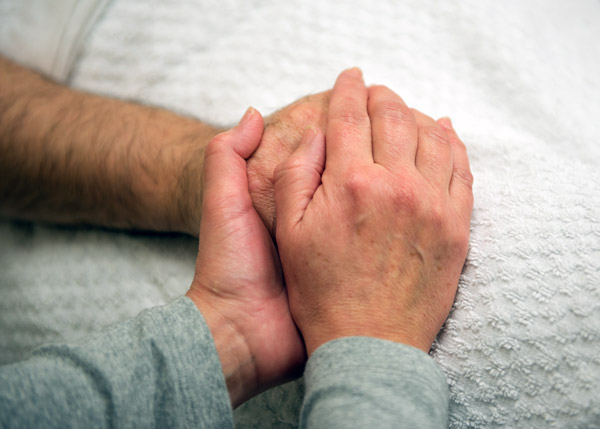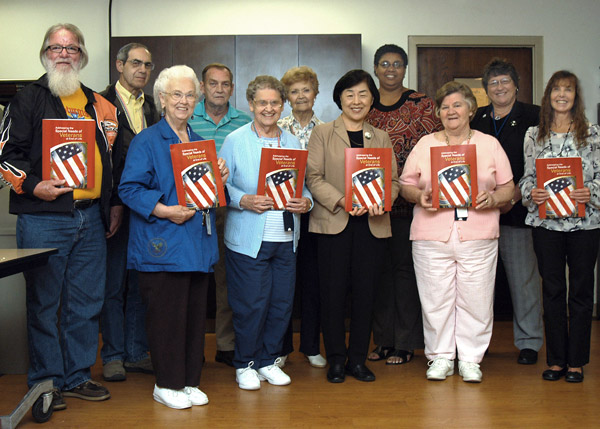VA Healthcare-VISN 4
The End of the Story

Cover Stories
The End of the Story
Wilmington VA's No Veteran Dies Alone program honors Veterans' last moments of life

Every Veteran's final battle must eventually come to an end. At seven VISN 4 medical centers, and at other VA medical centers throughout the Nation, VA volunteers make certain that when the time comes, no Veteran dies alone.
The No Veteran Dies Alone (NVDA) program, staffed by volunteers and hospital employees, provides companionship for dying Veterans whose families cannot be with them at the end.
Wilmington VA's First Participant
"We started our program about two years ago," explained Nurse Practitioner Maria Ash, palliative care program coordinator at the Wilmington VA Medical Center.
Volunteers receive two four-hour classes in how to support the dying, and in processing their own feelings relating to death and dying.
"Our very first participant was a patient in our intensive care unit who lived two hours from here," Ash told us. "His family wanted him to be closer to them when he died. We arranged for him to go to a hospice center, but the transfer was going to take at least eight hours."
"The staff and volunteers never let my brother be alone during the last month. They were by his bed if we weren't there. The staff stayed with us until the funeral home staff arrived."
From a VA customer service survey
The volunteer who came to support the Veteran was a Veteran himself, and told the dying man, "We have one more battle to fight – we've got to get you home." He stayed with the Veteran until the transport ambulance came. The Veteran made it to the hospice, and died in the company of his family.
"I believe the volunteer gave that man the strength to make it home," recalled Ash. "It was just amazing what he did."

Wilmington NVDA Volunteers
At Wilmington, volunteers working in shifts have stayed at patients' bedsides for as long as four days. "If we absolutely can't get a volunteer for a time period, the staff will take fifteen-minute shifts to make sure someone is with the Veteran when he or she dies," says Ash. Approximately 20 volunteers currently participate in the program.
Most volunteers just sit next to the Veteran. They are not trained to be medical providers, but will get nurses if needed. They hold their hands or provide gentle touch to show presence and support. Some read, including one chaplain who reads the Bible when it is acceptable to the Veteran and his or her family.
The palliative care team at Wilmington leads the facility's program, but volunteers themselves run it. Male volunteers generally cover night shifts, so that women don't have to drive to the hospital alone at night. Wilmington also has a "comfort cart" for families keeping vigils with dying relatives, with coffee and activity books to keep them occupied while they are at the hospital.
Besides Wilmington, VISN 4 medical centers at Altoona, Butler, Lebanon, Philadelphia, Pittsburgh, and Wilkes-Barre also offer Veterans and their families the NVDA program.
"It's just such a privilege to serve these heroes," Ash concluded.
















